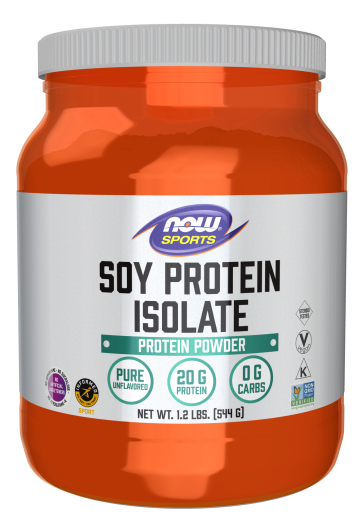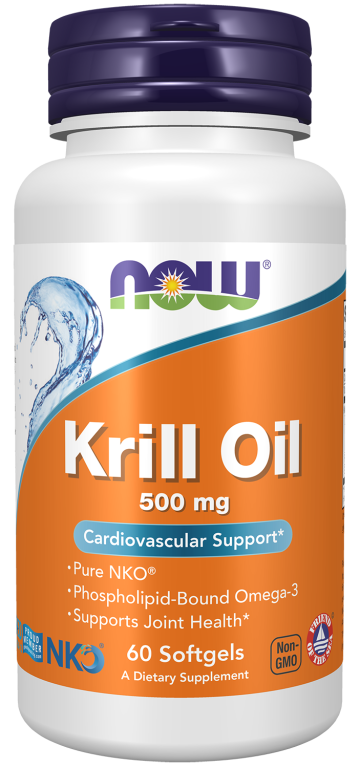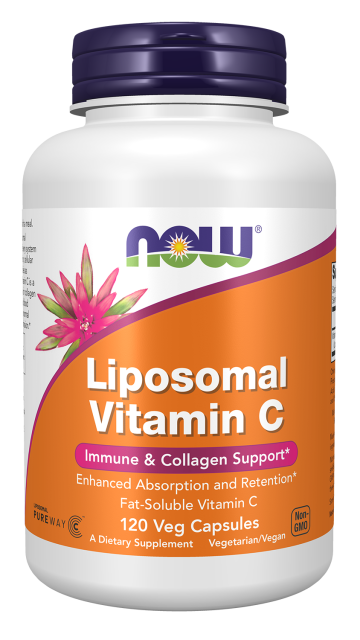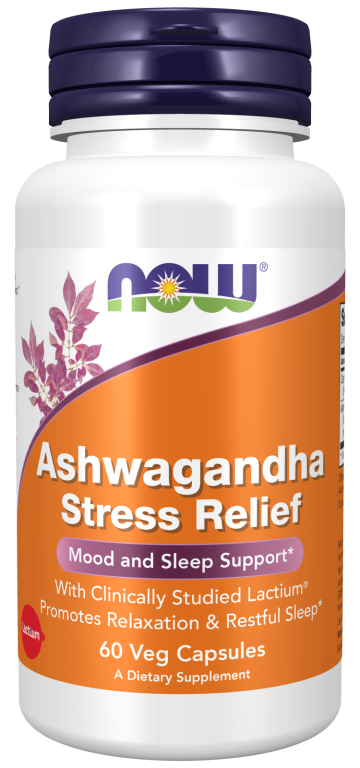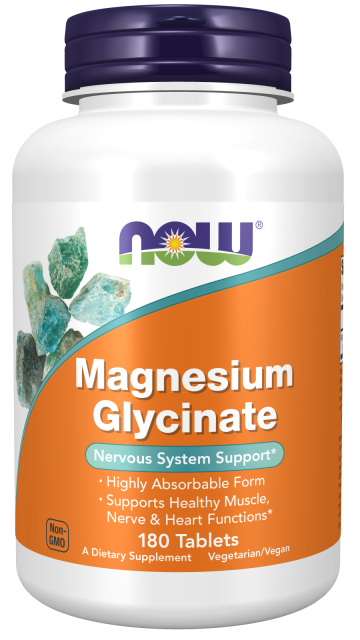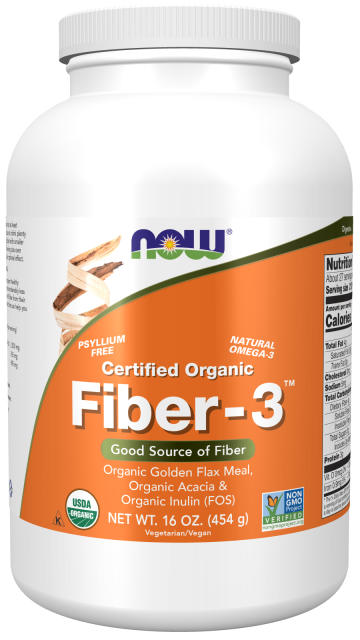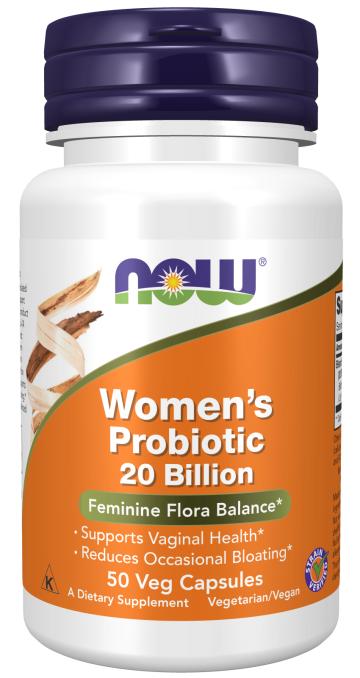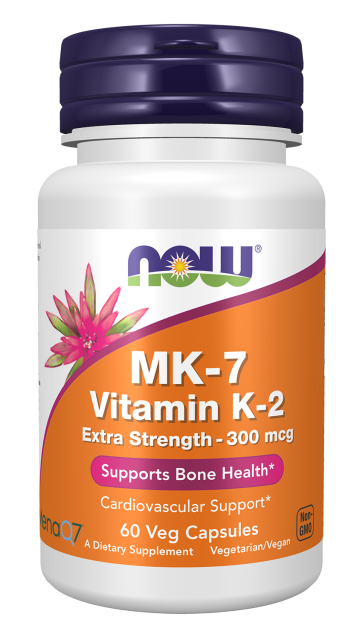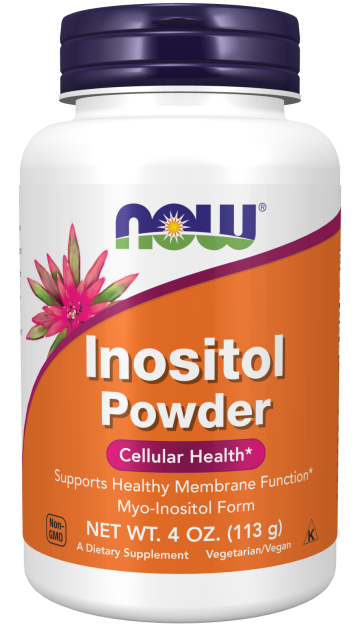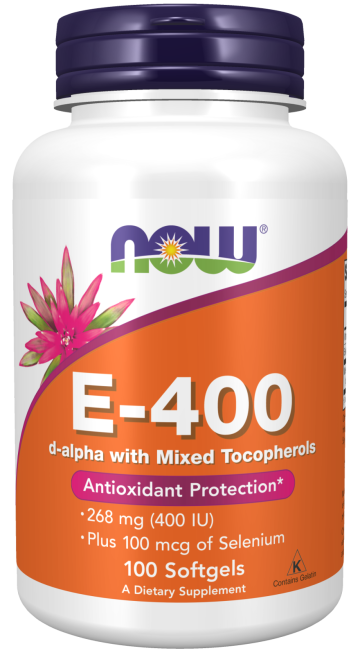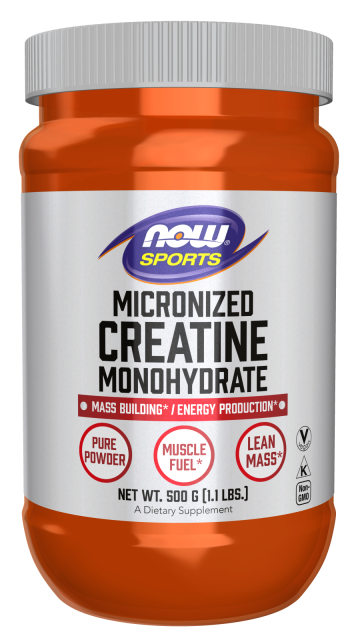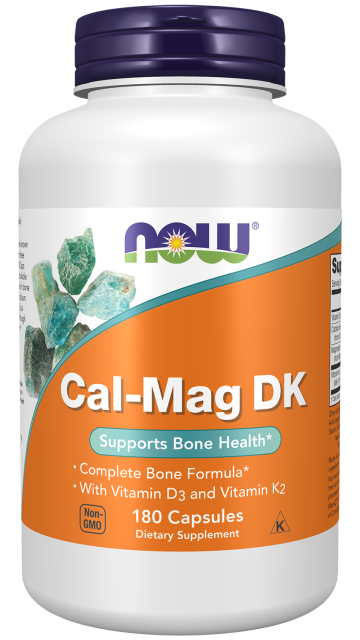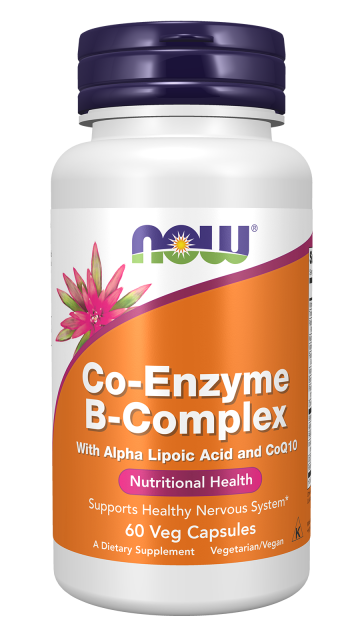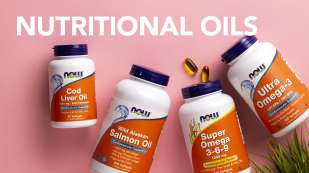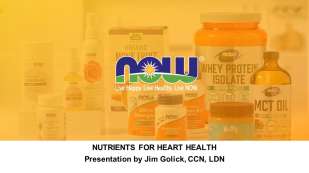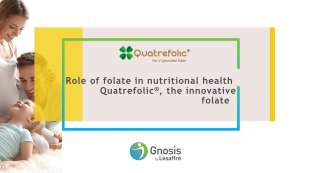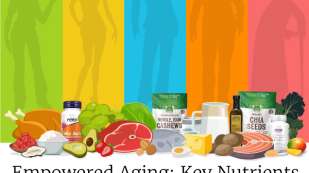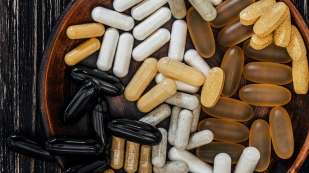Use coupon code MOISTURIZER with your purchase of $40 or more for a free†
Blemish Clear MoisturizerKey Nutrients for Menopause

Menopause is a single point in time, 12 months after a woman’s last period. The average age of menopause is 511, but it widely varies from woman to woman. This is a normal and natural part of the aging process. While symptoms, body composition changes, and increased disease risk may accompany this life stage, there are specific nutrients that can make this a strong and healthy experience for women. Note: These nutrients can be found in food, but many women find it difficult to meet their daily targets through diet alone, so supplements can help bridge this gap.
Author: DJ Blatner, RDN
Perimenopause
The time leading up to menopause is called perimenopause. An irregular menstrual cycle is usually the first sign of being in perimenopause. This transition can last 7 years2, but it varies from woman to woman.
Perimenopause Considerations:
The shifts in estrogen levels during perimenopause may cause women to experience symptoms3 such as hot flashes, sleep problems, mood changes, mental exhaustion, and joint/muscle discomfort. Additionally, changes to body composition4 may occur with shifts in fat and muscle mass.
Postmenopause
The time after menopause is called postmenopause. Women spend about a third of their lives in this stage.
Postmenopause Considerations:
The decrease in estrogen can make postmenopausal women more vulnerable5 to heart disease, osteoporosis, and metabolic concerns such as modifications in blood pressure and blood sugar levels, and abnormal cholesterol and triglyceride levels.
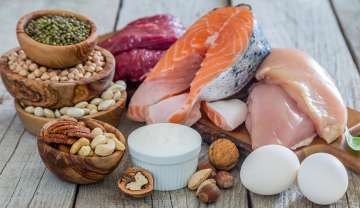
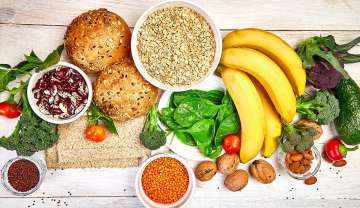
Fiber
What: Supports7 gut health, heart health, blood sugar balance, and contributes to a healthy weight.* A high-fiber diet has also been associated with fewer hot flashes.
Amount: 28 g/day (on average)
Foods: fruits, vegetables, beans, lentils, whole grains, nuts, seeds
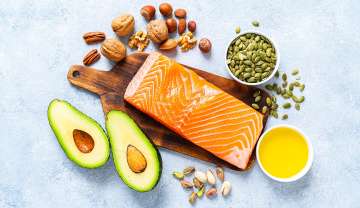
Omega-3
What: Supports heart health & joints.* Research suggests8 that it also may support a healthy mood and cognition during perimenopause.*
Amount: 1.1 g/day
Foods: salmon, tuna, sardines, flaxseed oil, walnuts, seeds
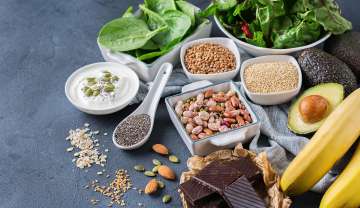
Magnesium
What: Supports9 healthy bone, muscle, and heart function.* It also may support already normal blood pressure, mood, sleep, and potentially reduce hot flashes.*
Amount: 320 mg/day
Foods: pumpkin seeds, chia seeds, almonds, spinach, brown rice
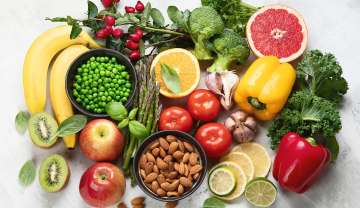
Vitamin C
What: Supports10 bone health, heart health, and possibly, normal cognition.* Also supports collagen production for healthy joints and skin.*
Amount: 75 mg/day
Foods: red bell pepper, orange, kiwi, broccoli, strawberries
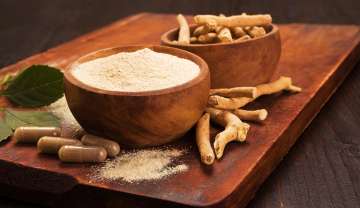
EXTRA CONSIDERATION
Ashwagandha
Why: Research suggests it may help to support the body’s adaptation to stress and increase quality of life.*
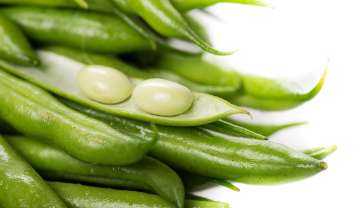
EXTRA CONSIDERATION
Isoflavones
Why: Research suggests they may reduce hot flashes and benefit bone density, normal blood pressure, and blood sugar already within the normal range.*
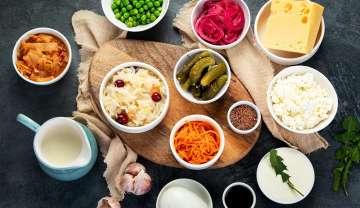
EXTRA CONSIDERATION
Probiotics
Why: Emerging research suggests a healthy balance of gut bacteria may play a role in healthy aging, normal immune system function, and the maintenance of optimal vaginal health.*
Perimenopausal Products
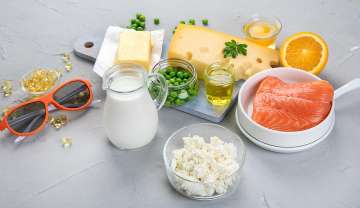
Calcium + Vitamin D
What: Supports bone health* (pair with vitamin K2)
Amount: Calcium: 1200 mg/day Vitamin D: 800 IU/day
Foods: Calcium: yogurt, cheese, milk, fortified orange juice and soymilk, kale, canned salmon
Vitamin D: fatty fish, some types of mushrooms, fortified dairy and plant milk
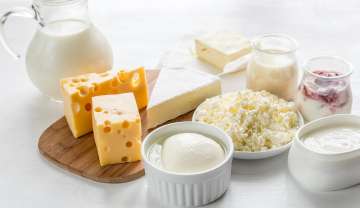
Vitamin K2
What: Supports11 heart health, blood vessel flexibility, and plays a role in bone health.*
Amount: 180 mcg/day (total vitamin K, not specific for K2)
Foods: fermented foods like sauerkraut, yogurt, and kefir, hard cheeses, egg yolks
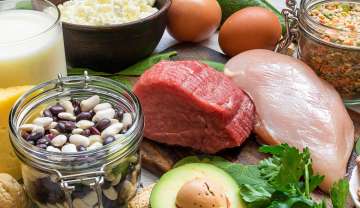
B Vitamins
What: Research suggests12 B vitamins (especially B6, B12, and folate) support heart health, mood, cognitive function, and bone health.* And folate may also decrease hot flashes.*
Amount: B6: 1.5 mcg/day B-12: 2.4 mcg/day Folate: 400 mcg/day
Foods: seafood, poultry, eggs, dairy products, legumes, leafy greens, avocado
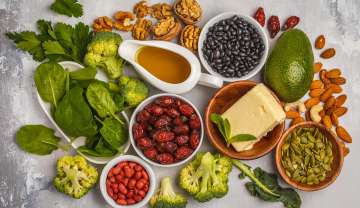
Vitamin E
What: Supports heart health, healthy blood vessels13, and may help manage menopause symptoms like hot flashes.*
Amount: 22 IU/day
Foods: wheat germ, sunflower seeds, almonds, peanut butter, spinach
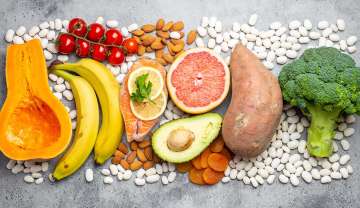
Inositol
What: May support metabolic health14 such as already normal blood pressure, cholesterol, and triglycerides, as well as normal insulin responses.* Additionally, it may help support normal visceral fat.*
Amount: no current guideline
Foods: beans, cantaloupe, grapefruit, whole grain bread, nuts
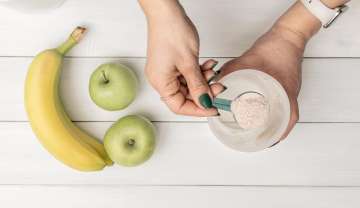
EXTRA CONSIDERATION
Creatine
Why: Research suggests that creatine may help promote muscle and bone health, as well as support cognitive function and mood.*
Postmenopausal Products
References
- Obstet Gynecol Clin North Am. 2011 Sep; 38(3): 425–440. doi: 10.1016/j.ogc.2011.05.002
- What Is Menopause? | National Institute on Aging (nih.gov)
- The Menopause Rating Scale (MRS) scale: A methodological review | Health and Quality of Life Outcomes | Full Text (biomedcentral.com)
- Body composition analysis: A snapshot across the perimenopause - Maturitas
- The Importance of Nutrition in Menopause and Perimenopause—A Review - PMC (nih.gov)
- Skeletal muscle mass is associated with higher dietary protein intake and lower body fat in postmenopausal women: a cross-sectional study. Silva, Thaís R. MSc; Spritzer, Poli M. MD, PhD. Menopause 24(5):p 502-509, May 2017. | DOI: 10.1097/GME.0000000000000793
- The Importance of Nutrition in Menopause and Perimenopause—A Review - PMC (nih.gov)
- n-3 PUFA Improve Emotion and Cognition during Menopause: A Systematic Review - PMC (nih.gov)
- Magnesium - Health Professional Fact Sheet (nih.gov)
- Selected vitamins and quality of life in menopausal women - PMC (nih.gov)
- Beneficial effects of one-year menaquinone-7 supplementation on vascular stiffness and blood pressure in post-menopausal women | European Heart Journal | Oxford Academic (oup.com)
- Selected vitamins and quality of life in menopausal women - PMC (nih.gov)
- Nutrients | Free Full-Text | The Effect of Vitamin E Supplementation in Postmenopausal Women—A Systematic Review (mdpi.com)
- https://pubmed.ncbi.nlm.nih.gov/20811299/
*These statements have not been evaluated by the Food and Drug Administration. These products are not intended to diagnose, treat, cure or prevent any disease.
